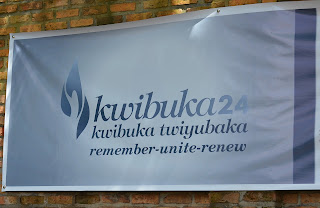A strong believer in allowing serendipity to choose whenever possible, the sparkly aquamarine nail polish hidden in the salon basket was the perfect colour for my pre-beach pedicure. Proving the point, said polish's name was Beach Bum Blu. Exactly right! See:
Tell me that isn't a perfect match! A week in Diani's balmy, fragrant air and lolling in translucent turquoise waters was restorative beyond words and to be truthful, there was a sulky dropped lip when Him Outdoors called time and said we had to return to Nairobi.
Buying wine in Kenya is difficult at the best of times, thrice so when the Beach-less Blues cling and the lip remains stubbornly drooped. The little supermarket liquor outlet, the size of my bathroom at home, presented the usual conundrum - which overpriced plonk to choose? Hold on, what is that sapphire glow at the back of the Chardonnay shelf? Has someone misfiled the Bombay?
No, it is indeed Chardonnay. A blue Chardonnay, Alma Azul Blue Soul, matching my still-Beach-Bum'd toes and memories of that gorgeous Indian ocean. A must-have gem of aquamarine delight was just what the doctor ordered for Blue Monday.
This tale of cerulean delight has further twists. I showed off my deliciously blue purchase on Facebook and was surprised to get a note from my London-based cousin whom I haven't seen for decades. This wine she must have, it's the perfect match for her corporate brand and would make the ideal client gift. Can she get it in London? Does it taste good?
Fancy that. She lives in the centre of the universe and my treasure is a revelation to her! Yup, I reckon she'll find a case or two of Spanish vinho somewhere in her city. Hold on, her mother is right at this minute holidaying at their summer house in Spain, about 20 miles from the Alma winery in Almeria. Dear aunt was alerted that a shopping expedition was called for but before heading out, tasting had to be done and no better person than yours truly and her friend and neighbour to take one for the team. We'll drink the blue stuff!
 |
| Even the cork is blue! |
We took it seriously, I promise. Tasting portions were poured and we sat back, lips smacking, sniffing and swirling. "It's so fruity, mango?" wine ignoramus posited. "Apricots," declared Maria. Definitely. We sipped and mused, refilled to muse some more and in a trice, the beautiful bottle was bare. Can't be, we were just having a tasting!
We agreed that we'll have to try the Alma Azul sparkling wine we saw in another wine shop, there really is no point in doing a half job.
Isn't it amazing that in a teeny Nairobi supermarket wineshop we have unearthed a novelty wine made a few miles from where my aunt summers? And found the perfect corporate gift for my cosmopolitan cousin on the other side of the world?
Living in Africa is a permanent lucky dip. Around every corner there is something interesting and astonishing. Life is never boring and while 'blue' is often associated with sadness or depression, for me it is tranquil, the colour of sea, sky and my soul; simply my favourite colour of all. This week.
PS - our tasting notes, in case you stumble across a bottle of Alma Azul Blue Soul Chardonnay:
Strong apricot nose and initial palate. Easy drinking, high novelty value. If reasonable low price a definite wine for casual quaffing. Great corporate or novelty gift. If higher end price , not worth keeping in the cellar. We enjoyed but at the price point here, many better options of quality wine. Xxx







